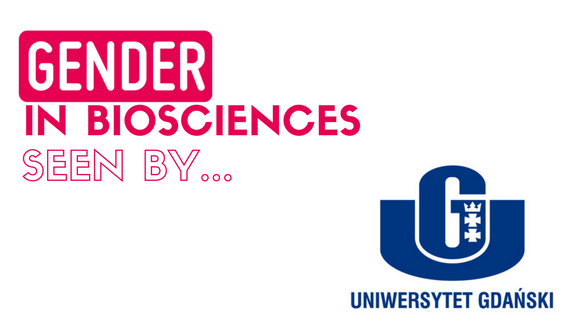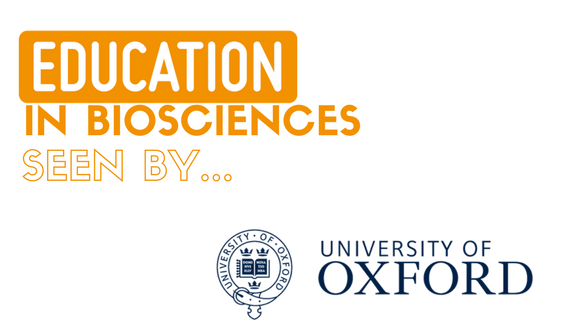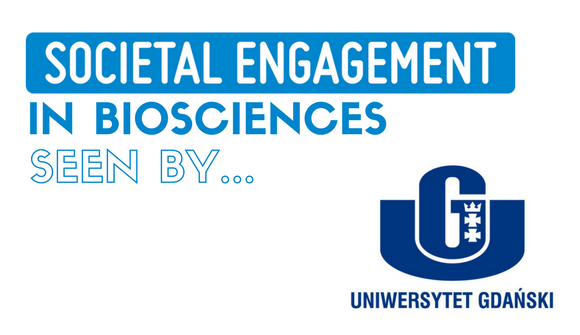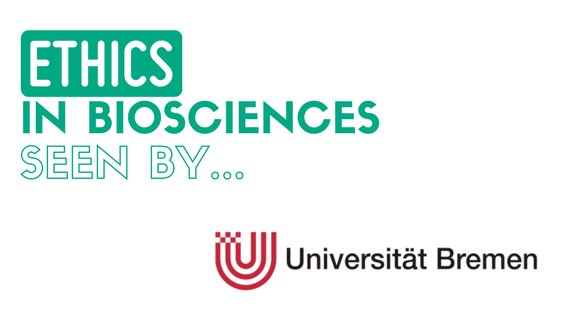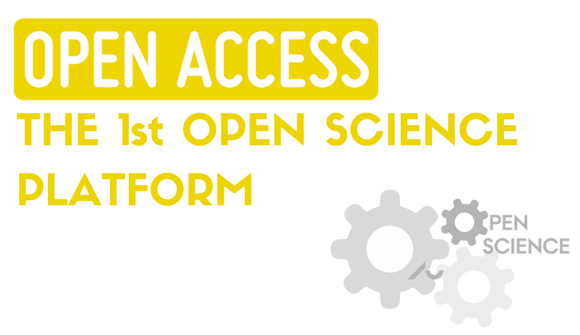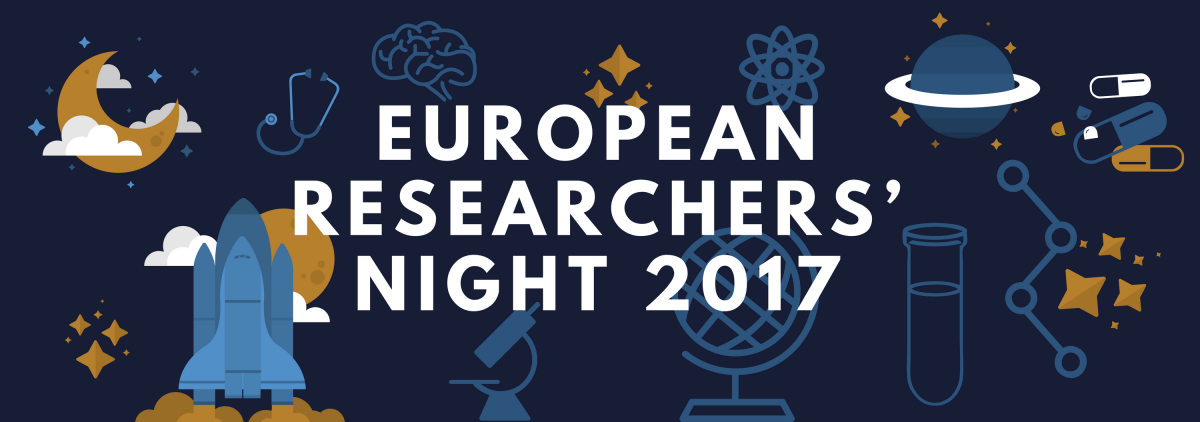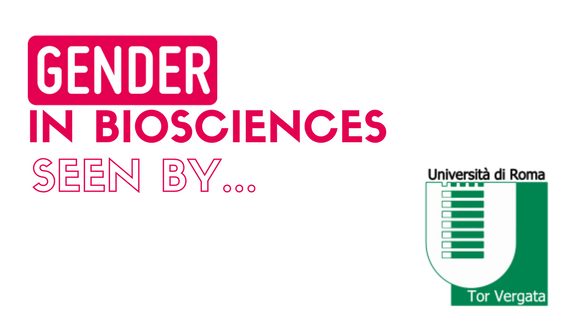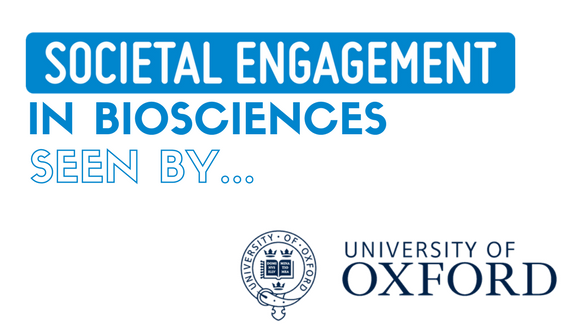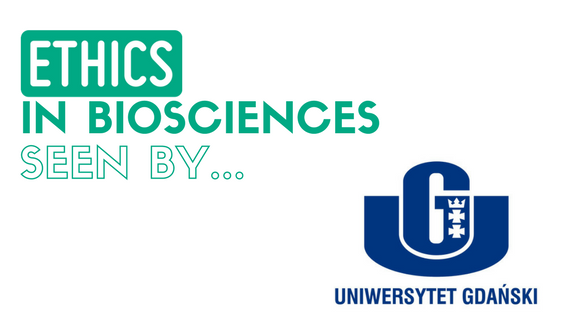How do you understand “gender” in Biosciences research? Our focus on gender is intersectional as it overlaps with other important roles women and men undertake: The gender of the researcher: it is important to bear in mind the number of male and female staff at the Intercollegiate Faculty of Biotechnology UG & MUG (IFB) and of different obstacles to their research careers that might result from gender stereotypes that influence the concepts of what men/women should and shouldn’t do. The gender of the student: we are aware of IFB being a faculty with a majority of women, so we know it is good to design the teaching programmes in such a way as to attract also more male students and give equal chances for both genders. The gender and the management level in institutions: it is necessary to highlight that gender stereotypes have a strong impact on leadership structure, so we understand the meaning of tailored training in leadership skills. The gender and role-models: in our opinion well promoted roles models of both male and female scientists encourage researchers to take up new tasks and that work-life balance has a positive effect on facilitating gender equality in institutions. What are the current standarts and actions to achieve better gender equality in Gdansk University and in Poland in general? The University of Gdańsk has experience in introducing the standards of gender equality policy promoted by the EU. Researchers take part in projects financed by external funders which focus on implementing gender …
Education as a key RRI issue, seen by the University of Oxford
How do you understand Education in biosciences research? Science education is a key element of Responsible Research and Innovation (RRI) framework. The aim is to better connect science and society through various educational approaches and interventions. This is particularly important in biosciences, which can help address some of the key societal challenges identified in Horizon 2020, including health, demographic change and wellbeing as well as food security, sustainable agriculture and forestry, and the bioeconomy. What are the current standards and actions to achieve better Education in your University and in your country? NIHR Oxford BRC Research and Education Working group offers a variety of opportunities for training aimed to increase the research capacity of those working in the NHS. There are research Grand Rounds (lectures) for nurses and weekly newsletters to raise awareness of internal and external funding opportunities. The University of Oxford also hosts the Oxford University Clinical Academic Graduate School, which offers an academic foundation programme and Academic Fellowships. What are you aiming for with the implementation of the STARBIOS2 actions towards better Education standards for your institute? There are many educational opportunities at the University of Oxford via departmental seminars and training programmes associated with the NIHR Oxford BRC. We aim to identify the most appropriate avenues to disseminate RRI. These opportunities will fit into the delivery mechanism of the educational programmes, the local entrepreneurial milieu, and focus on the work of the NIHR Oxford BRC. What kind of actions are you going to establish to …
Societal Engagement in Biosciences, seen by the University of Gdansk, Poland
How do you understand Societal Engagement in biosciences research? Scientists have a responsibility to engage in public dialogue about the implications of biosciences findings and to help distinguish between socially beneficial and socially harmful applications. The relation between science and society, including politics, is the base of social and economical development. The state decides about directions of development by legal and financial instruments, but it also suffers consequences of the lack of social acceptance of new technology. Bioscience is a cutting-edge area of science in which the pace of progress is perhaps faster than society’s capacity to deal with its ethical and social implications – therefore needs to be addressed properly. What are the current standards and actions to achieve better Societal Engagement in your University and in your country? State scientific policy is not consistent in defining the role and function of scientific communication. There is a great discrepancy between ambitious goals set for research units and academics in this area and financial support or the raising of the rank of activity in this field in the periodic assessment of a scientific unit or the processes of scientific career development. Popularization of science is part of the Development Strategy of the University of Gdańsk until 2020 – in the field of strengthening of the university’s ties with the economic and social environment of Pomorskie. What are you aiming for with the implementation of the STARBIOS2 actions towards better Societal Engagement standards for your institute? The Intercollegiate Faculty of Biotechnology …
Ethics in Biosciences, seen by the University of Bremen, Germany
University of Bremen – Faculty of Biology & Chemistry Dr. Doris Elster – Head of the Department of Biology Education at the Institute of Science Education. How do you understand Ethics in biosciences research? The term “research ethics” comprises a set of values, norms and institutional regulations that support and regulate scientific activities. Research has a fundamental ethos, namely the search for truth. At the same time, research ethics emphasizes that research has a – more general -responsibility for the society. In this area of tension between researcher’s curiosity and responsibility towards humans and the environment research ethics in biosciences occurs. What are the current standards and actions to achieve better Ethics in the University of Bremen? At the University of Bremen ethical issues are determined within the “Regulations assuring good scientific practice” (German Research Association) and complied within the “Principles of good scientific practice”, adopted by the Academic Senate on February 23, 2002. The nine members of the “Committee for the Investigation of Allegations of Scientific Misconduct” are elected by the Academic Senate of the University of Bremen and investigate and evaluate any concrete suspicion of scientific misconduct. What are you aiming for with the implementation of the STARBIOS2 actions towards better Ethics standards for the Faculty Biology and Chemistry at the University of Bremen? Our aim is to raise awareness of ethical issues in general and to promote good research practice based on already existing and guidelines as well as further specific guidelines for the biosciences. At the University of …
The 1st Open Science platform launched by Aarhus University, Denmark
An innovative free of charge tool Along with a number of leading Danish industrial companies, Aarhus University has opted out of the academic and patenting rat race in a new collaboration on basic research of relevance to industry. Researchers and companies from all over Denmark have the opportunity to publish their results and data on the innovative Open Science platform, where the information is available free of charge to everyone interested. Established with funds (DKK 2.5 million) from the Danish Industry Foundation, the platform combines basic research with industrial innovation, ensuring that industry and universities get greater benefits from each other’s research and technology. The Open Science platform breaks the barriers that make it difficult and expensive for companies to gain access to the part of basic university research that is most relevant for them. It also addresses a number of major challenges facing basic research, in particular in Denmark, where both researchers and grant providers focus increasingly on safe bets. Why creating an Open Science platform? The aim of the Open Science platform is to have university researchers and companies collaborate to create basic new knowledge that is available to everyone – and which no one may patent. However, everyone is subsequently free to use the knowledge to develop and patent their own products. The interest for such an idea of collaborating in a patent-free zone is enormous among companies that otherwise use substantial resources on protecting their intellectual property rights. The first platform focuses on smart materials and …
Meet scientists on European Researchers’ Night 2017
The European Researchers’ Night (NIGHT) is a public event dedicated to popular science and fun learning that occurs each year since 2005, on the last friday of September. More than 30 European countries, and 300 cities are involved in that event! What happens during the European Researchers’ Night? On this night visitors get the opportunity to meet researchers from all disciplines, in unusual and scenic spaces. The event invites you to meet science heroes, researchers from all scientific disciplines whose fascinating work can, and will, change our lives. This is a unique opportunity to endorse these heroes’ cloak by making you a researcher for the night, discovering countless scientific disciplines, and above all, have fun! All these events will take place on Friday 29 September in several hundred cities throughout Europe and in several neighboring countries. What is the goal of the European Researchers’ Night? The main objective of the European Researchers’ Night (NIGHT) is to increase research and innovation awareness, and to bring researchers closer to the general public. It showcases what researchers really do for society, as well as promoting research careers to young people. Agrobioinstitute (ABI) & the European Researchers’ Night! This year, on Friday, September 29th, ABI will take part of the NIGHT. You will be able to meet scientists from: Agrobioinstitue (ABI), Sofia, Agricultural Academy Institute of cryobiology and food technology (ICFT), Sofia, Academy Institute of ornamental plants (IOP), Negovan, Agricultural Academy Biological faculty (BF), Sofia University About ABI Agrobioinstitute is one of the most dynamic research structures …
Gender in Biosciences, seen by the University of Tor Vergata, Italy
Elena Bachiddu – Member of the Department of Biology at the University of Rome “Tor Vergata”. She works in communication, event organization and on the website of the Department. She is a cultural anthropologist and teaches ‘Health and Safety at Work’ for “Didactics of Science” courses, the theoretical-practical modules annually organized by the Department to promote and disseminate scientific knowledge among students of first and second grade schools. Elena Bachiddu is also a member of the Central Advocacy and Control Committee (CUG-Comitato Unico di Garanzia), where she coordinated Work-Life Balance seminars and publications. 1. How do you understand “Gender” in biosciences research? Broadly based and explored in the field of Gender Studies theory, the discourse on ‘gender difference’ is emerging nowadays in Italy in the biomedical disciplines where it is understood as closely related to the guidelines of personalized medicine and no longer as limited to the sphere of reproductive health of woman. Consequently, Gender Medicine, starting from research and biomedical experimentation and pre-clinical studies, appears as an area that currently recognizes and examines the sex and the feminine difference. In this sense research and experimentation approaches are oriented within several pharmacological research projects and research institutes, training of medical specializations, hospitalization procedures in the local healthcare facilities and healthcare policies. However, in general terms, we must remember that, according to the Global Gender Gap Report presented at the World Economic Forum, Italy still ranks 50th as for women participation in the labor market and for economic opportunities, and in particular according …
Societal Engagement in Biosciences, seen by the University of Oxford, England
Dr. Laurel Edmunds – is a Senior Research Fellow working in collaboration with the NIHR Oxford BRC and relevant researchers across the University of Oxford. She is currently leading on a series of systematic reviews evaluating women in academic medicine and research efficacy in the NIHR Oxford BRC. Dr. Maria Milano – is a research assistant at the Radcliffe Department of Medicine in Oxford University. 1. How do you understand “Societal Engagement” in biosciences research? Societal engagement is a two-way process resulting from the interaction between researchers and the public in order to obtain a mutual benefit. It is signified through different types of activities: collaborating activities which aim to create or decide something together with the public (e.g. partnership working); receiving activities where the views, knowledge and experiences of the public are used to inform, build, or even change decisions (e.g. surveys); transmitting activities with the intention of inspiring and informing the public (e.g. science festivals). 2. What are the current standards and actions to achieve better Societal Engagement in Oxford University and in England in general? A key focus of the University of Oxford is to equip academics and researchers across the entire institution to develop and deliver public engagement with research activities. We have specially trained personnel that run courses and offer resourses (eg www.oxfordsparks.ox.ac.uk) to support researchers with their engagement activities. Societal engagement is now recognised as an academic accomplishment in the UK as part of the Research Excellence Framework (a rank of effectiveness and achievement of the UK researchers, by …
Ethics in Biosciences, seen by the University of Gdansk, Poland
Prof. Krzysztof Bielawski – is a Professor at IFB. He is also Vice-Rector for Development at University of Gdańsk (UG) and has a PhD in medical biology and D.Sc. in biological sciences. Prof. Bielawski is a full-professor in biological sciences since 2011. 1. How do you understand “Ethics” in biosciences research? Ethics plays a vital role in research, especially in biosciences. Two aspects are to be taken into account in this respect. On the one hand, we have ethics in the sense of research ethics, valid for any research area. This includes issues such as research integrity, resolving conflict of interest, equality, so called “good and bad science” issue, etc. On the other hand, specific ethical issues affect the work of bioscience researchers related e.g. to the use of animals, human tissues, embryos or GMO, and have to be dealt with in a responsible way in order to make research safe, reliable and acceptable. 2. What are the current standards and actions to achieve better Ethics in Gdansk University and in Poland in general? Ethics in biosciences is regulated in Poland by rules introduced on the national level. Researchers need to observe laws and regulations regarding the use of animals, human tissues as well as GMO or GMM. Specific ethical consents need to be obtained from the respective national or regional bodies as a proof that the institution and the projects complies with the required procedures. In some cases these consents are issued e.g. by the Ministry for Environment in other …
Gender in Biosciences, seen by Oxford University
Dr. Laurel Edmunds – is a Senior Research Fellow working in collaboration with the NIHR Oxford BRC and relevant researchers across the University of Oxford. She is currently leading on a series of systematic reviews evaluating women in academic medicine and research efficacy in the NIHR Oxford BRC. 1. How do you understand Gender in biosciences research? Gender is of growing importance in bioscience research for two main reasons. First, women should not be disadvantaged or treated differently in the workplace just because they are women. Second, as more and more women are going into scientific careers, they are bringing new perspectives and alternative approaches. We cannot afford to lose these resources from the biosciences. 2. What are the current standards and actions to achieve better Gender in your University and in your country? Since 2008 we have had the Athena SWAN Charter for improving gender equality in sciences in the UK. Higher education institutions sign up to the Charter and then apply for an award (either Bronze, Silver, Gold) and complete applications with supporting evidence, and submit these to the Athena SWAN organisation. Bronze requires an assessment of gender equality, a 4-year action plan and an organisational structure that can deliver the plan; Silver is awarded when a department has delivered and shown an impact from these actions; Gold these are maintained and the department supports others. Few science departments hold a gold award as they are difficult to get and keep. There is now a similar Charter …




